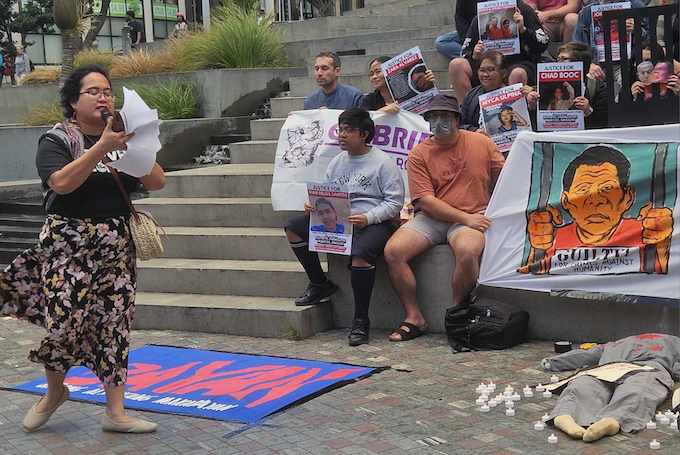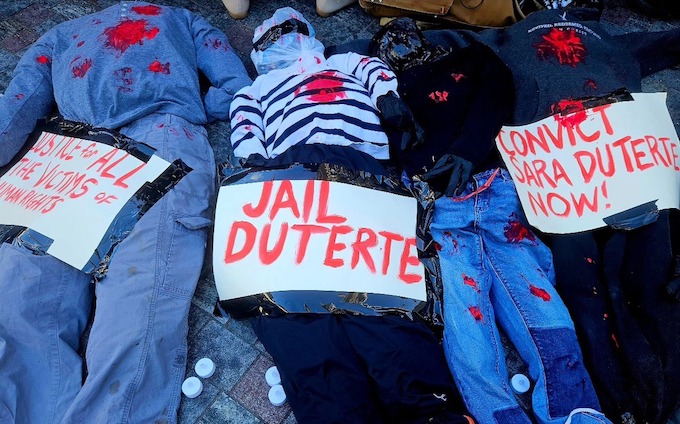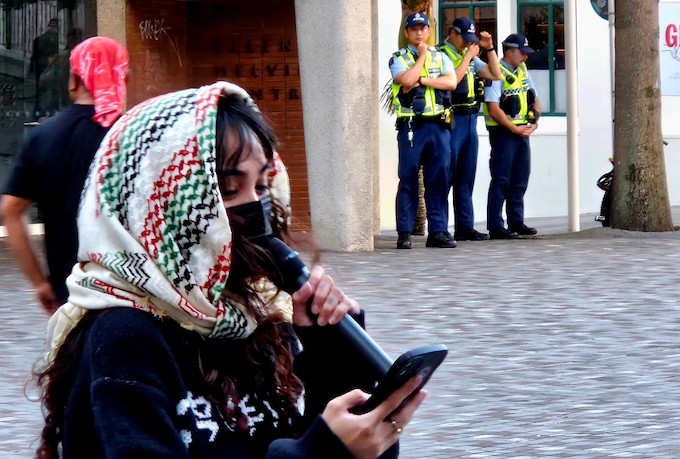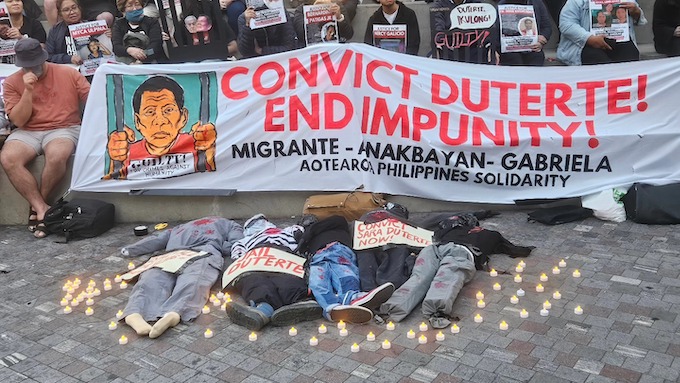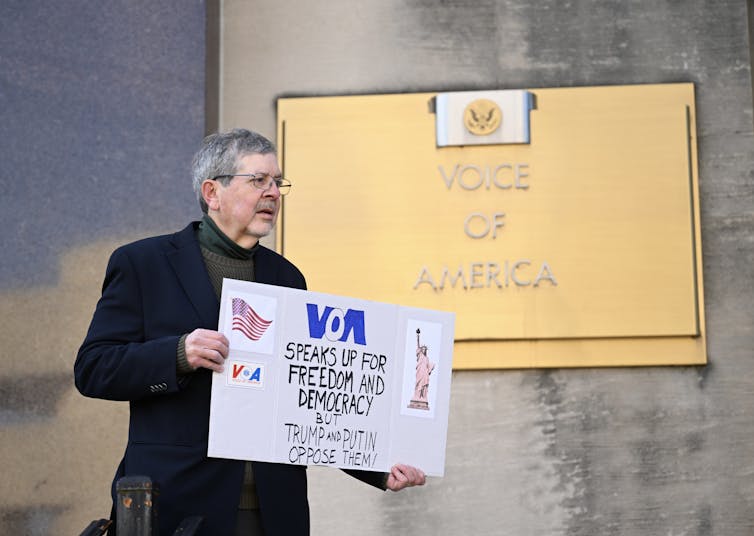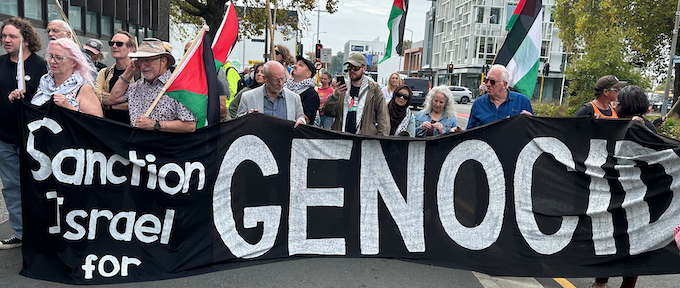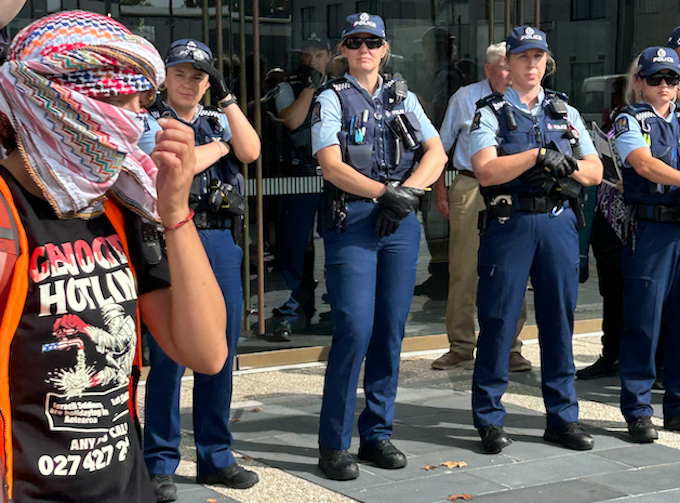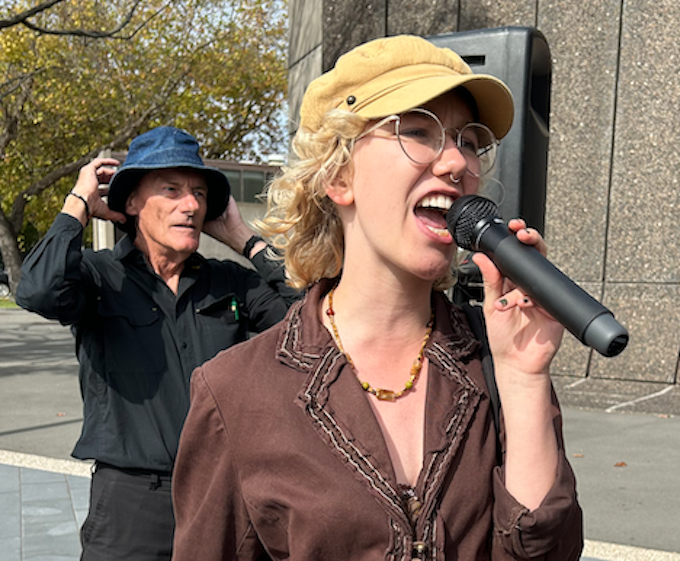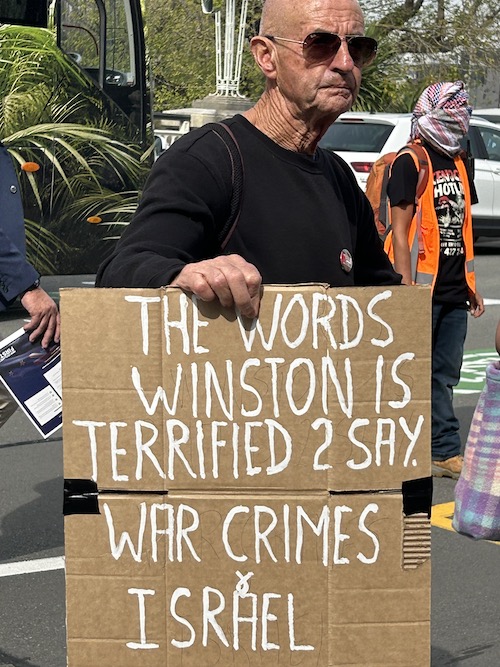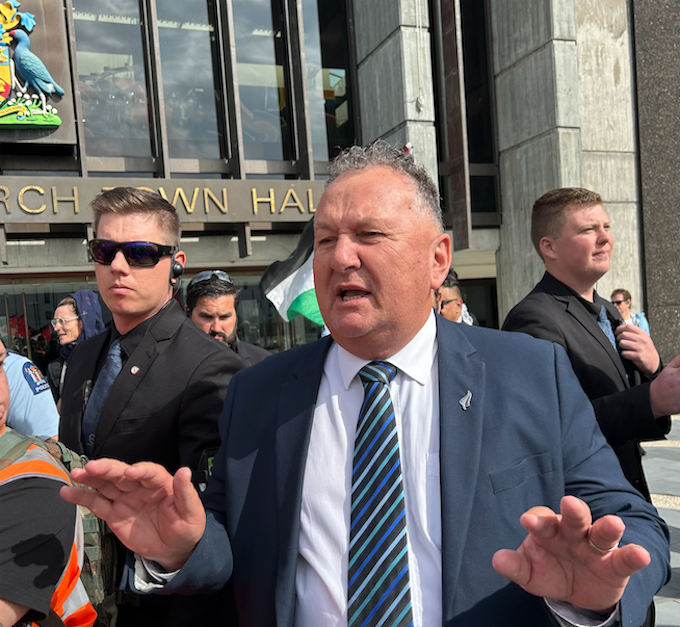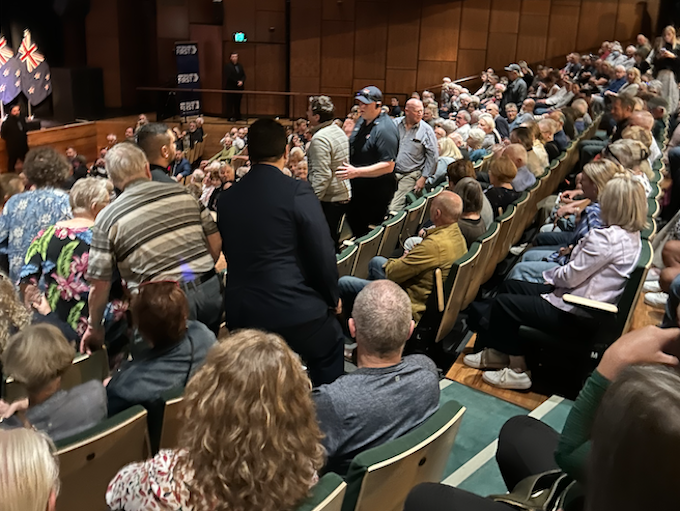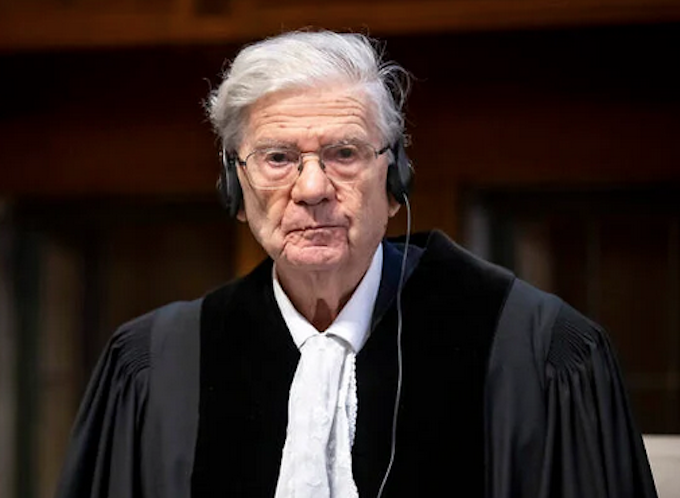US Elites want South Korea to be a “dictatorship for democracy”
Morse Tan, a high ranking former US State Dept. official, recently let the cat out of the bag on the US ruling elite position on South Korea’s Martial Law. He declared that “Yoon declared Martial Law to preserve South Korea’s Democracy.” Having previously labeled South Korea a model democracy, this is a No-Scotsman-move taken to absurdity.
Now, Tan is not a current US government official, but he is an indicator of what the US national security state is thinking, in particular, what its neocon wing is thinking. Tan also recently claimed that “the impeachment against Yoon is an insurrection” led by opposition party leader Lee Jae Myung “who wants to turn the country over to the Chinese communists”.
As absurd and conspiratorial as these allegations sound, these are actually finely-tuned and well-honed Washington-CPAC talking points about Chinese threats and interference in Korea, and they are echoed endlessly, if histrionically by US flag-waving foot soldiers at South Korean protests and on Youtube. These anti-China messages were also repeated in German State TV ARD’s documentary “Staatskrise im Schatten von China und Nordkorea” (State Crisis in the Shadow of China and North Korea), released to its German public television website on Feb 25th. The documentary claimed that China had hacked South Korea’s legislative election to put the opposition DP party into power, who are now taking their orders from North Korea and China to impeach YoonThere is clearly a highly convergent and disciplined campaign of anti-China propaganda around the impeachment. ARD has removed its documentary, but the damage has clearly been done.
It’s impossible not to highlight the absurdity of Tan’s statement–“Yoon declared martial law (i.e. military dictatorship) to preserve democracy”. And as a foreign national, Tan is breaking South Korean law by directly participating in domestic Korean politics. But the free reign he is given, and the lack of disavowal or reprimand from the State Department–if only for his own safety–is very revealing.
Tan’s position in the state department was Ambassador at Large. These are powerful, Viceroy-type postings: they represent US policy and US interests on a (grand) strategic level. Consider other Ambassadors-at-Large: Averell Harriman, Henry Cabot Lodge, Paul Nitze, Paul Bremer III, StrobeTalbott, Robert Gallucci. These are not individuals given to improvising and airing idiosyncratic personal opinions. As a former state Viceroy, with the enduring prestige and power of state connections, the platforms that Tan has been given to expound his views signal that he is expressing the direction of official doctrine, reflected both in Tan’s public statements, state media talking points, and the coordinated erasure of counterviewpoints.
Strategic Unambiguity: What the US wants
US policy on South Korea’s dictatorship/martial law is analogous to its policy on Taiwan: Strategic “ambiguity” in language, concrete support and escalation in actions. The “ambiguity” serves to pretextually mask war preparations against China. Of course, there is nothing ambiguous about the strategy, other than the desire for a fig leaf of plausible deniability.
What the US wants from Korea is that which is strategically most advantageous for the US: a right wing Korean client regime to do the bidding of the US: escalate and prepare for war with China. This is a war that it has been envisioning since the early 2000’s and which was institutionalized by Obama’s “Pivot to Asia”. In fact, the reason Yoon was selected, elected, and lionized as South Korea’s president is because he was a walking neocon fulfillment list for this war.
As these war preparations accelerate and intensify, a South Korean military dictatorship with the US in control of the South Korean military is the easiest and most advantageous configuration to enact these plans. The US will settle for a client-plutocratic democratic state, but dictatorship has actually been the historical norm since South Korea was created by the US. Given the tight timelines involved, it is also possible for this configuration to be instituted again: this project of war is urgent and time-bound–US natsec heavyweights have calendared 2025 and 2027 (“the Minihan” & “Davidson windows”) as the propitious date range to trigger war with China.
Easy-peasy political proxy
South Korea offers two key strategic advantages. First, geographically and historically, Korea has always been the on ramp and bridgehead for invasion into China. War with China has always started from the Korean peninsula or Taiwan island, usually as interlinked pairs. Second, South Korea has the world’s 3rd largest standing army–including reservists, 3.6 Million troops–,larger than the militaries of China and Russia combined. The US gets operational control over these troops immediately if there is war. War with China is thus most compatible and convenient with a South Korean dictatorship.
There is very strong circumstantial evidence that the US knew beforehand about Yoon’s Martial Law declaration, due to the length and intricacy of the preparation and the aggressive military nature of the operation-which would have required coordination and communication with US forces in Korea. At the very least, they would have been aware. And regardless, they would have benefitted, geostrategically.
Sworn testimony shows that Yoon’s gambit was to trigger war with North Korea (through drone attacks, missile attacks, shelling, false flag assassinations of opposition) to justify declaring Martial Law. Only poor execution, North Korean forbearance, and rapid citizen mobilization prevented the seamless rollout of this military coup. Evidence has come out that Yoon was preparing repeated coups. Historically, all military coups on the southern peninsula have been greenlighted by the US.
On that point, Morse Tan is the Nancy Pelosi of Korea: he functions like a Track II US envoy–cheerleading for a right-wing South Korean military coup, with just the slightest hint of plausible deniability.
Note the dead radio silence out of Washington throughout this whole process: silence during the Martial Law declaration, silence after the rejection of Martial Law, silence after the impeachment, and silence throughout. Not a word of critique or condemnation. Note also the deafening hush of the mainstream corporate media.
Meanwhile, the fissures in SK society are approaching civil war.
Institutional Civil War, Governmental chaos
There is already intergovernmental war: on March 22 the CIO (Corruption Investigation Office, similar to the US Inspector General) raided the Prosecutor’s Office (similar to the Attorney General) for corruption, just days after the Prosecutor’s Office raided the CIO for evidence of warrant shopping on Yoon’s impeachment. This would be like the Inspector General raiding the Attorney General after the Attorney General raided the Inspector General.
Yoon has been released from custody on a technicality (“counting hours, not days”) despite being indicted for insurrection. His co-conspirators are still incarcerated, but the ringleader is free, highlighting the absurdity of the ruling. The prosecutor’s office, ostensibly committed to prosecuting Yoon, did not even bother to file an appeal. The prosecutor’s office is considered to be Yoon’s private army–Yoon was the former prosecutor general of Korea, and he promised to create a “Republic of Prosecutors”. That much he has been successful on.
The Return of the Zombie
Han Duck Soo, the impeached South Korean Prime minister (and former acting president) has just had his impeachment reversed yesterday, and is now acting president again.
The constitutional court found that Han had violated the constitution (by refusing to appoint already approved justices to the Constitutional Court to rule on the impeachment issue) but they reinstated him anyway. Never mind the irony that the court could have lacked standing to try his case if he had been successful in disabling the court. Han had also been tasked with appointing an independent counsel to investigate Yoon (to avoid the conflicts of interest that have appeared with the prosecutor’s office), but he had declined, leading to the current debacle of suspect loyalties and suspicious/delayed/tampered/sabotaged legal processes. One Constitutional Court justice claimed that the current political chaos was directly related to Han’s malfeasance and non-cooperation in these matters and found for impeachment–but she was a tiny minority of one in the ruling.
The Constitutional Court’s ruling on Han Duck Soo was already problematic in that it was out of sequence. The fact that they ruled first before Yoon’s case, and ruled against impeachment is an ominous signal. Two other high officials, Kim Seong-hun, and Lee Kwang-woo (of the presidential security service), indicted for impeding Yoon’s arrest, have recently also had their arrest warrants rejected. These are powerful figures who are now at large, with huge axes to grind. The trends are not in favor of impartial justice or peaceful resolution.
Washington’s Dirty Hand
The delayed impeachment ruling of Yoon itself is widely thought to be due to Washington’s pressure: it has been one month since the testimony was completed, but still there has been no ruling. This is abnormally long for what is an open-and-shut case: there is no doubt that Yoon declared Martial Law (he is on television declaring it!), and there is no doubt that he used extra-constitutional means–military force–to implement it and to try to prevent its rescission. But it’s widely considered that the ruling is delayed so that Lee Jae Myung’s appeal ruling (due on 3/26) will be decided before the Constitutional court’s ruling on Yoon is made public.
This is because Lee Jae Myung, the opposition DP party chair, would be the leading candidate for president if the impeachment of Yoon triggers a snap election (in 60 days). He is currently 20+ points ahead of any other potential candidate by polling. The presidency would be his to take under normal circumstances.
However, if Lee’s guilt is sustained by the appellate court, he would be stripped of all political rights for a decade, and the opposition DP would lose its strongest candidate. Washington does not want Lee Jae Myung as president, because it’s understood that he would balance with China against the US, and de-escalate the coming war on China. Hence the delay. Opposition party representative Park Sun-won has verified that the US is exerting pressure through diplomatic channels to align the impeachment date as close to Lee Jae Myung’s sentencing as possible.
On the Brink of Explosion
South Korea is now a tinderbox on the brink.
One million protestors hit the streets over the weekend, demanding the Constitutional court deliver its verdict immediately. Some of these protestors had been previously protesting in the snow for weeks, demanding justice. From the right, there has been open aggression by right wing counter-impeachment protesters, paid up or pumped up with “anti-communist” fervor by religious leaders and the ruling party, repeating ARD and CPAC tropes on “Chinese communist intervention”. These shock troops have destroyed and rampaged through Seoul’s Western District Courthouse, assaulted opposition party politicians, as well as attacked Chinese tourists as “spies”. The right have openly spoken of reconstituting the North West Youth league–the genocidal red-baiting death squads of the Korean war.
And so, it seems the American flag-waving beatings will continue until the anti-communist morale improves in the country. Regardless of the rulings to come, South Korea’s destiny is precarious: more potential turbulence, more violence, even potential civil war. Certainly more twists and turns. If the constitutional court acquits Yoon, there will be mass popular protests in the millions: Yoon will be incapable of ruling and is likely to declare Martial Law again, if only to save his bacon (he is facing insurrection charges). Recent news has revealed that Yoon had plans to declare Martial Law multiple times.
On the other hand, if the constitutional court successfully impeaches Yoon, the ruling party and its followers will pull out all the stops: street violence and a Maidan-type insurrection by the right wing cannot be ruled out. The quiet acquiescence of the right as was the case after the Park Geun Hye impeachment is unlikely, given the heated propaganda allegations and the polarized ideology.
So, South Korea is facing risky outcomes either way. The forces acting on this small country are immense. Whether Koreans get a clear diamond or spontaneous combustion from the immense pressure remains to be seen.
There is a tiny, narrow path that would relieve pressure and facilitate a more peaceful outcome. If the US removes its finger from the scale in South Korean affairs–and disavows the US-flag-waving right that it is stoking and supporting–a single word of reprimand would deflate the South Korean rightwing like a sharp pin to a blow up doll.
But that would take a geostrategic shift–a downshifting and downsizing dreams of US Hegemony, and a turn towards peace and win-win.
Is the US capable of this? Or will it continue its dangerous ways? The fate of the peninsula–and possibly the planet–lies in the balance.
The post
Chaos under Heaven: South Korea’s Deepening Political Debacle first appeared on
Dissident Voice.
This post was originally published on Dissident Voice.
